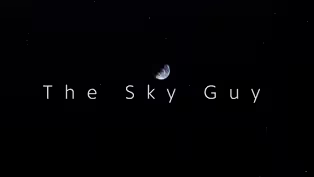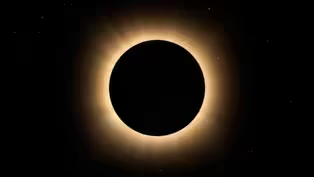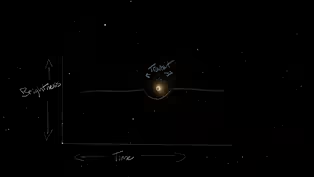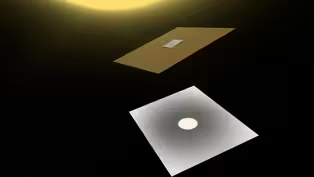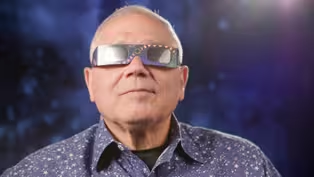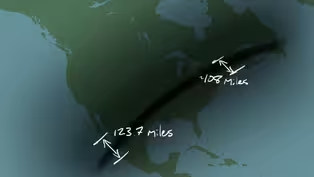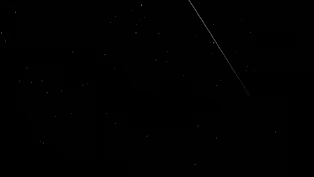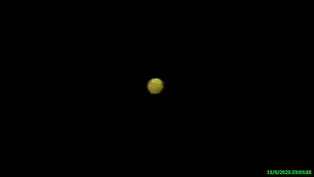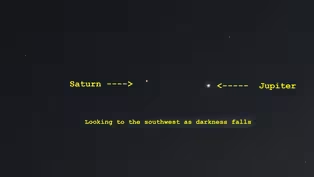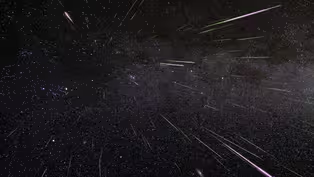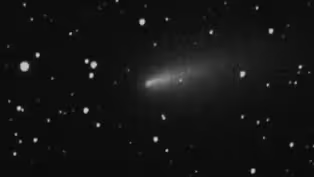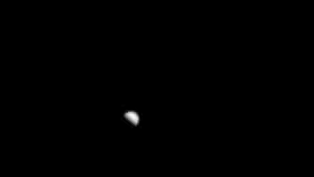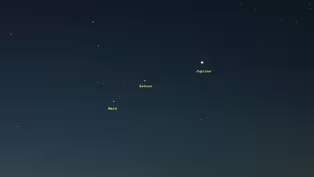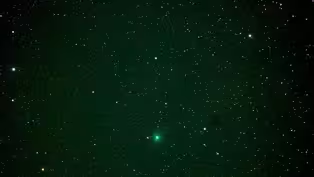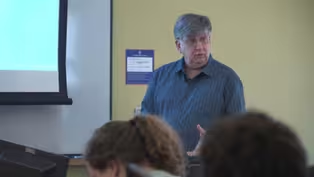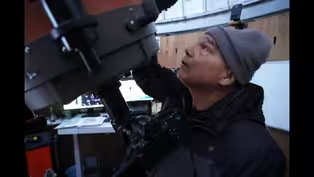New Hampshire in Space
Protecting Your Eyes: Glasses
Clip | 1m 30sVideo has Closed Captions
The only way to safely view an eclipse directly is to use certified solar eclipse glasses.
The only way to safely view an eclipse directly is to use certified solar eclipse glasses. On October 14th, 2023 New Hampshire will experience a partial eclipse of the sun and on April 8th, 2024 New Hampshire will experience a total solar eclipse. This will be a once in a lifetime experience for NH residents!
Problems playing video? | Closed Captioning Feedback
Problems playing video? | Closed Captioning Feedback
New Hampshire in Space is a local public television program presented by NHPBS
New Hampshire in Space
Protecting Your Eyes: Glasses
Clip | 1m 30sVideo has Closed Captions
The only way to safely view an eclipse directly is to use certified solar eclipse glasses. On October 14th, 2023 New Hampshire will experience a partial eclipse of the sun and on April 8th, 2024 New Hampshire will experience a total solar eclipse. This will be a once in a lifetime experience for NH residents!
Problems playing video? | Closed Captioning Feedback
How to Watch New Hampshire in Space
New Hampshire in Space is available to stream on pbs.org and the free PBS App, available on iPhone, Apple TV, Android TV, Android smartphones, Amazon Fire TV, Amazon Fire Tablet, Roku, Samsung Smart TV, and Vizio.
Viewing the sun directly with your eyes, with binoculars, a telescope or a camera can lead to permanent damage to your eyes.
What makes this even more dangerous is that while you're damaging your eyes, you won't feel any pain.
So you don't even realize you're hurting your eyes until it's too late.
This damage can be permanent.
There are two simple ways that make it quite easy to view the sun in a safe way.
First, you can use the projection method, which is viewing the sun indirectly.
Another method is to view the sun directly using certified solar eclipse glasses like these.
Where are these lightweight glasses just like you would any other glasses.
But they're so dense that they block out most of the sun's intense visible light and harmful ultraviolet and infrared light.
And that's the important part.
These forms of light that we cannot see can cause severe burns to our retina, potentially damaging your vision permanently.
Wearing certified eclipse glasses will prevent this and still allow you to safely watch all of the partial phases of the eclipse.
The only time during a solar eclipse that's safe to look directly at the sun is during the total phase.
When the moon completely blocks out the sun.
As soon as the first beads of sunlight peek out from behind the moon, it's glasses back on immediately.
Video has Closed Captions
Clip | 2m 35s | What a precious place we all share. (2m 35s)
What You Will See: Total Eclipse
Video has Closed Captions
Clip | 50s | What should you expect to see during the total solar eclipse? (50s)
Video has Closed Captions
Clip | 1m | Did you know even amateur astronomers using small telescopes can observe and discover? (1m)
Protecting Your Eyes: Projection Method
Video has Closed Captions
Clip | 1m 55s | Did you know you can build your own projector to safely view an eclipse? (1m 55s)
Video has Closed Captions
Clip | 1m 30s | The only way to safely view an eclipse directly is to use certified solar eclipse glasses. (1m 30s)
Video has Closed Captions
Clip | 1m 15s | What you see will see during the eclipses will depend on where you are! (1m 15s)
Quandrantid Meteor Shower - The Sky Guy
Video has Closed Captions
Clip | 1m | Don’t miss the peak of the annual Quandrantid Meteor Shower on January 2nd. (1m)
Video has Closed Captions
Clip | 1m | Mars will appear as a bright orange disk in the sky throughout December. (1m)
Jupiter and Saturn Conjunction - The Sky Guy
Video has Closed Captions
Clip | 1m | On December 21, the Jupiter and Saturn will be so close together. (1m)
Geminid Meteor Shower - The Sky Guy
Video has Closed Captions
Clip | 1m | The year’s best annual meteor shower is coming to our sky on the evening of December 13th. (1m)
Video has Closed Captions
Clip | 1m | What’s that bright star in the evening sky? It’s actually the planet Venus. (1m)
The Morning Planets - The Sky Guy
Video has Closed Captions
Clip | 59s | John Gianforte guides you on how to view the three aligned, morning planets. (59s)
Video has Closed Captions
Clip | 2m | Comet Atlas has brightened considerably since it was first seen in December, 2019. (2m)
Moon Memories | Mark McConnell
Clip | 1m 25s | Mark McConnell teaches about space at the University of New Hampshire. (1m 25s)
Moon Memories | John Gianforte
Clip | 1m 15s | John Gianforte runs the observatory at the University of New Hampshire. (1m 15s)
Moon Memories | Jeanne Gerulskis
Clip | 1m 15s | Director of the McAuliffe-Shepard Discovery Center. (1m 15s)
New Hampshire in Space (Preview)
Video has Closed Captions
Preview: Special | 30s | New Hampshire has had its eyes on space exploration for decades. (30s)
Providing Support for PBS.org
Learn Moreabout PBS online sponsorshipSupport for PBS provided by:
New Hampshire in Space is a local public television program presented by NHPBS
